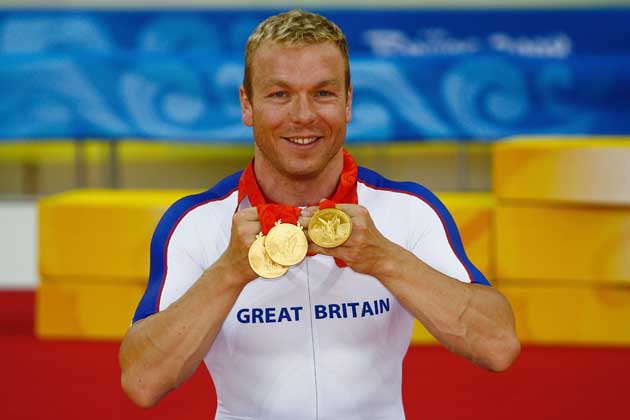Sport: Revolution with an oval ball - and heaven and hell on wheels

There has been no sporting blockbuster this year, but much fine writing. Best-written of all is John Carlin's fantastic Playing The Enemy (Atlantic, £18.99). Carlin makes a convincing case for the 1995 Rugby World Cup final as the pinnacle of Nelson Mandela's career, the moment he had worked towards for decades. As The Independent's man in South Africa from 1989 to 1995, Carlin is superbly equipped to chronicle the rebirth of a nation, and his account – which will be a film, with Morgan Freeman as Mandela and Matt Damon as François Pienaar – is utterly compelling.
One of the few pleasures Mandela had while imprisoned on Robben Island was watching football. In the 1960s, in the teeth of the authorities' opposition, the prisoners founded the Makana Football Association, with its structured league and highly organised teams. It became as much of a symbol of resistance as recreation, and Chuck Korr and Marvin Close tell the story well in More Than Just A Game: Football vs Apartheid (Collins, £17.99).
The British might have invented football, but tactically they remained in the Stone Age for decades, as Jonathan Wilson recounts in the wonderful Inverting the Pyramid: The History of Football Tactics (Orion, £18.99). He fleshes out the progress from kick-and-rush to the tight patterns of today, from 2-3-5 to 4-2-3-1 and all points in between – W-M, catenaccio, wingless wonders, liberos, registas and trequartistas. You'll watch football with a keener eye after reading this book.
The Manchester United manager Matt Busby, no great tactician, would send his Babes out with orders simply to enjoy themselves, and their joyous spirit transcended the city limits. David Hall was an 11-year-old Mancunian when the heart of the Babes side was ripped out by the Munich air disaster, and in Manchester's Finest (Bantam, £18.99) he recounts the aftermath in moving detail: how it felt strange for Germans to be saving British lives; the depression that hung over the city. He describes singing "Danny Boy" to his bedridden grandmother, as he did every week for sixpence. This time, when he came to the line, "the summer's gone and all the flowers are dying", he burst into tears. She gave him his sixpence anyway.
It isn't just football that the rest of the world can thank Britain for. In Can We Have Our Balls Back, Please? How The British Invented Sport (Allen Lane, £17.99), Julian Norridge entertainingly details the origins of 14 major sports – and lays to rest myths, from William Webb Ellis and his supposed invention of rugby to the Americans' touching belief that they invented baseball.
While Haruki Murakami is best known for novels like Norwegian Wood, for as long as he's been writing he's also been running – marathons, mainly. So he knows what he's talking about in What I Talk About When I Talk About Running (trans. Philip Gabriel; Harvill Secker, £9.99). He's full of insights into writing as well as running, the two being intertwined in his life.
Of all the British success stories at the Olympics, the most glittering were the cyclists'. Richard Moore's Heroes, Villains & Velodromes (HarperSport, £15.99) has the lowdown into how that success was forged, spending a year with Chris Hoy, a triple gold medallist, and the GB team. Suffice to say that the medals were hard-won, thanks to what must be the most professional set-up in the whole of sport.
Bad Blood: The Secret Life of the Tour de France (Yellow Jersey, £12.99) explains how the cycling journalist Jeremy Whittle went from "adoring fan to bitter insider". He describes talking to a cyclist after a race and an ampoule falling out of the competitor's pocket. "You weren't supposed to see that, Jeremy," he said. Whittle stared at the ground then muttered, "Don't worry." That was it. He was part of it – and it's a gripping read.
Not many sports books feature epigraphs by Cyril Connolly, but given Ed Smith's double first in history from Cambridge, maybe we shouldn't be surprised. In What Sport Tells Us About Life (Viking, £14.99), the Middlesex and England batsman presents a fascinating collection of essays on subjects such as amateurism, cheating and "the curse of talent". Do athletes have anything to learn from beauty queens? Smith answers this and many other mind-bending questions.
Subscribe to Independent Premium to bookmark this article
Want to bookmark your favourite articles and stories to read or reference later? Start your Independent Premium subscription today.

Join our commenting forum
Join thought-provoking conversations, follow other Independent readers and see their replies